Does Biology Interfere with Equality and Access for Transgender Athletes?
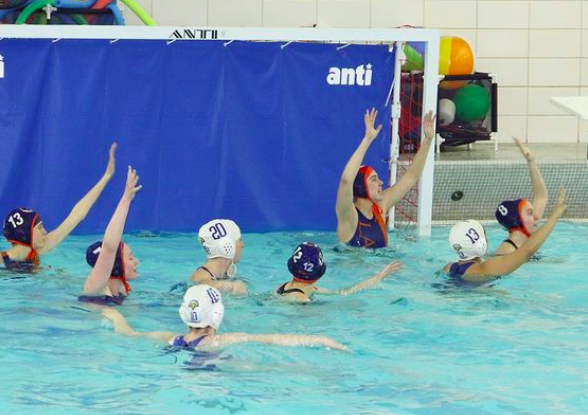
Girl’s Water Polo Team
The World Health Organization (WHO) defines gender as “a person’s deeply felt, internal and individual experience of gender, which may or may not correspond to the person’s physiology or designated sex at birth.” Historically, activities such as sports have been segregated by a person’s sex assigned at birth, not by their gender identity. On January 20, 2021, however, President Biden signed an executive order stating that government-funded sports organizations as well as school sports are now required to allow people to play on teams with people of the gender they feel fits their identity best.
President Biden’s executive order is only the most recent in a concerted effort to allow transgender people to participate on sports teams aligning with their gender identity. As of 2016, the Olympic Committee guidelines allow for transgender women to participate on the condition that they either undergo gender reassignment surgery at least two years before the Olympics or begin hormone replacement therapy no less than one year before. Transgender men are authorized to participate with no prior medical intervention.
The recent Biden order sparked conflicting responses including a Wall Street Journal article titled “Joe Biden’s First Day Began the End of Girls’ Sports,” and an opposing article from The Guardian titled, “Joe Biden’s gender discrimination order offers hope for young trans athletes.”
To some, headlines like the Wall Street Journal’s sensationalize the impact of Biden’s order. Computer science teacher Ash Hansberry said, “To say this is death to women’s sports is to say that sports and extracurriculars are more important than the lives of the group of people who are just trying to exist.” Junior Kazi Stanton-Thomas, the head of the Identity Coalition for Latin (ICFL), agreed, saying, “I think that this is a huge step for trans people and sports in general. Sports are very gender-segregated.”
Since the order was released, there has been concern about how it could impact the fairness of sports, especially given physical differences between biological males and females. “It would be naive to believe that cisgender women, or cisgender men, or boys or whoever, are identical in the first place,” said Mx. Hansberry, suggesting that segregating athletes by their sex assigned at birth doesn’t necessarily group people with teammates and opponents of the same height, weight, or strength.
“In reality, I think the best case scenario would be if we can eliminate gender terminologies for sports,” said Kazi. “It should be based on skill level.”
Senior Colin Campbell is largely in favor of skill-based sports. “There used to be a girl on my team,” he said. “She was very good, and still is because she’s playing D1 soccer. She played on our team because she didn’t want to play with people she thought she was a lot better than. To me, if you can play with the respective talent level of the team, it doesn’t matter what you identify as, because you’re bound to benefit the team in some way, like any other player would.”
At the time, the girl playing on the team chose to play with the boys team to gain more recognition. “She wanted to play with our team because the girls team her age was not ranked as high as ours. So for college exposure, she chose to play with us until she went to a girls team who got similar college exposure to us,” Colin said. “We were 13 or 14 at the time.” At the time, the girl playing had begun puberty earlier than most, and, as a result, was stronger and faster than the girls her age. As the boys on her team began to mature and grow, she switched back to girls soccer.
However, senior Lily Prostic spoke to the controversial aspects of the order, as well as skill-based sports. “Transgender people should absolutely be able to participate in the sport of their identified gender, but, at the same time, people with more testosterone athletically outperform those with less,” she said.
Lily also explained the reasoning behind gender-segregated sports. “Athletic performance is considered relative to those of the same gender for a reason. In the case of track and field, for example, is it fair to biological females to compete against those whose biological bodies allow them to move faster, jump higher, throw further? And is it fair to deny transgender women the right to compete in the category to which they know they belong?”
Additionally, senior Bea Parr, a track and cross country runner, spoke about the importance of protecting women’s sports leagues. President Biden’s order goes against the significance of “protecting women’s rights [in having their own league], and women’s rights to excel,” she said.
Though Bea did emphasize the importance of all people having access to a team in which they feel most comfortable, she noted that a person’s sex-assigned-at-birth hormones affect their athletic performance. “If somebody identifies as a woman but has really high testosterone levels, then they could instantly beat all of the girls and women with female levels of estrogen,” she said.
While President Biden’s order has been highly controversial, Latin community members have been hesitant to speak up against it on the record. The community feels strongly about equality in sports and for the LGBTQ+ community, but there are elements of the order that could change the dynamics of sports, particularly women’s sports, forever.
A case in Connecticut put the status of transgender athletes to the test in June of 2020. Prior to the case, the state of Connecticut allowed high schoolers to participate in the sport that they felt fit their gender identity best but faced a backlash from the federal agency after two transgender girls won state titles in the 100m, 200m, 300m, 55m, and the 4×400 across the indoor and outdoor state track finals meet. As a result, three assigned-at-birth female runners filed a lawsuit to prevent transgender women from participating in their league, as the two girls had set records in the 100m and 200m that biological females found physically impossible to beat, according to the lawsuit.
One of the main pieces of evidence in the case (also used in the Wall Street Journal article) was that Allyson Felix—an all-time great American female Olympic sprinter—has a lifetime best of 49.26 seconds in the 400m dash. According to a 2018 statistic, each year, approximately 300 high school aged boys in the United States alone run a faster time. And according to MileSplit, in the 2019 outdoor track season alone, there were 706 U.S. high school boys who ran faster than 49.29 for 400m. Felix currently holds six gold medals. Situations like Felix’s raise questions about the future for female athletes if biological males are allowed to compete against them.
During his presidency, Donald Trump passed policies that many consider infringements on the rights of LGTBQ+ people, such as a ban on transgender people serving in the military. In the first week of Biden’s presidency, he reversed this executive order, and included more rights for transgender people with it. “My initial reaction to hearing about Biden’s executive order towards transgender people was one of joy,” said Madison Seda, a senior and co-head of Latin’s LGBTQ+ affinity. “It felt like throughout Trump’s presidency, LGBTQ+ people were brought up mainly in a negative light, so I’m glad this is a more positive one. Reversing Trump’s transgender military ban was a step in the right direction, and I am hopeful that Biden continues supporting transgender people and their road to equality and protection.”
As a school, the order on transgender athletes applies to Latin directly. But according to Director of Athletics Sonny Lim, it seems Latin already had this policy in place. “The school is open to any sorts of concerns where student-athletes are not treated fairly,” he said. “It doesn’t matter your gender, your race, or what you practice religiously. We recognize and celebrate those differences.” Although Coach Lim is confident that the school is prepared to accommodate the needs of transgender students, he acknowledged, “We have not had a case or an issue.”
Kazi, who is non-binary and plays on the boys lacrosse team, also brought up a post on the Latin Instagram that contributed to their feelings of discomfort toward the school. “[Over the summer] the Latin Instagram posted, ‘Look at our boys lacrosse team!’ I am front in the picture. One of my friends replied and said not everybody on the team is a boy. Latin never deleted the post or changed the caption. There is some transphobia happening in the comment section; they deleted those comments.” The students who posted those comments were reportedly not punished.
Many are optimistic about the impact this executive order could have for transgender rights. “Having this situation where trans people can join any sport that they feel best in, increases one’s own mental health,” said Kazi. “I want this executive order to be the recognition to trans people who feel like they weren’t previously seen, and I feel it will do so.”
Mx. Hansberry offered a note of caution. “I think people should slow on their reaction. The executive order doesn’t say anybody can play any sports whenever they want,” Mx. Hansberry said. “The executive order refers to students being safe at school. What this is really about is about the lived experience of young people who are already a vulnerable population, trans individuals.”
In response to Latin’s confidence in their protocols for transgender students and faculty, and the supposedly limited issues with sports, Mx. Hansberry said, “There are people at Latin who, either while they were at Latin, or shortly after, have identified as trans or non-binary. I think it is naive of us to think we don’t have to worry about that here. There are people who identify as trans or gender nonconforming everywhere, and they aren’t comfortable to come out because there aren’t good policies in place,” they said.
Overall, the responses to President Biden’s recent order are mixed, but members of the LGTBQ+ community say they hope that it will mean continuously more equal rights for the transgender community. Additionally, as a school, the community hopes that Latin will progress their efforts to make the school a welcoming and open community for all. “I feel wholeheartedly that if somebody is going through the journey to make the decision [to transition genders], they have gone through enough already,” said Coach Lim. “To say you can’t be on a team would be a disservice.”

Eliza Lampert (’24) is a senior at Latin and is overjoyed to serve as one of this year’s Editors-in-Chief. During her time writing for The Forum, she...






































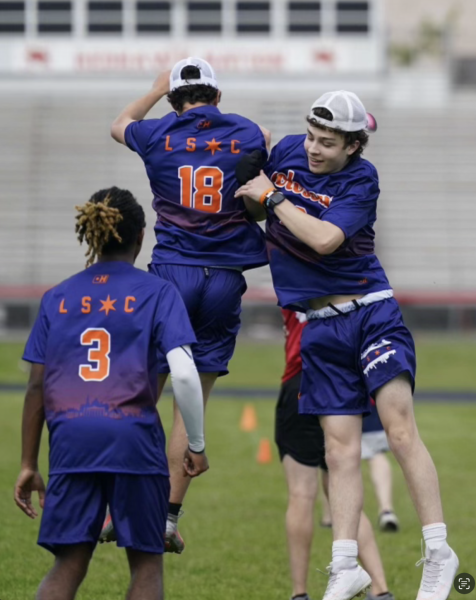

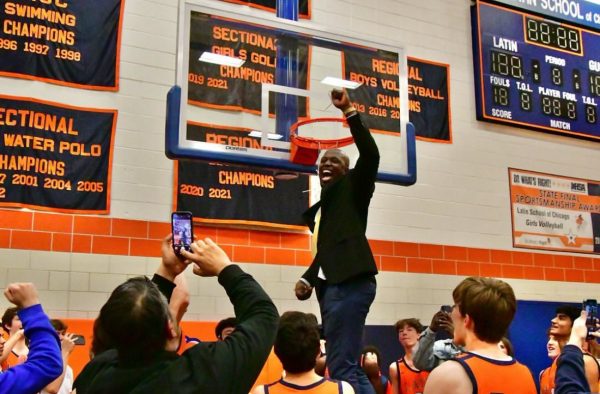

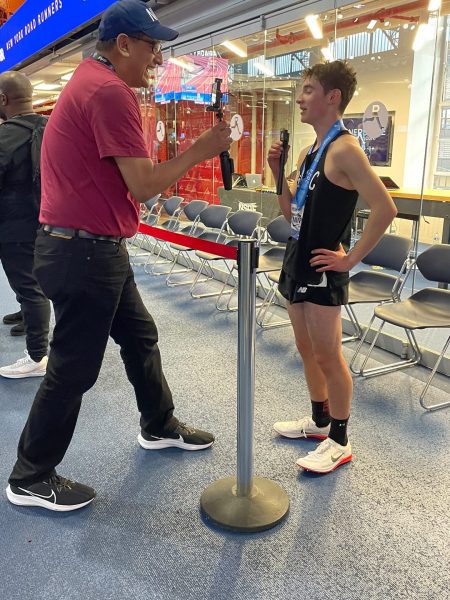
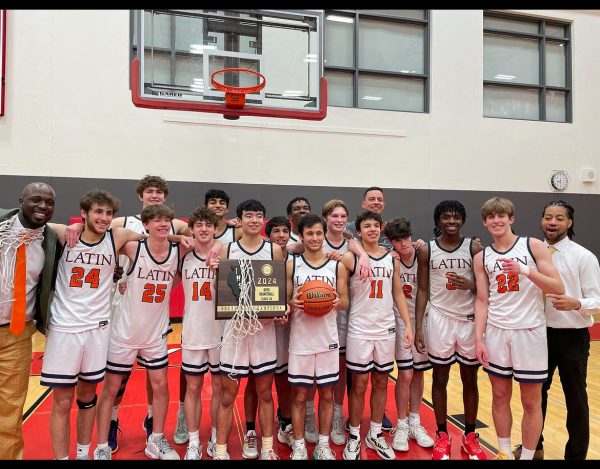
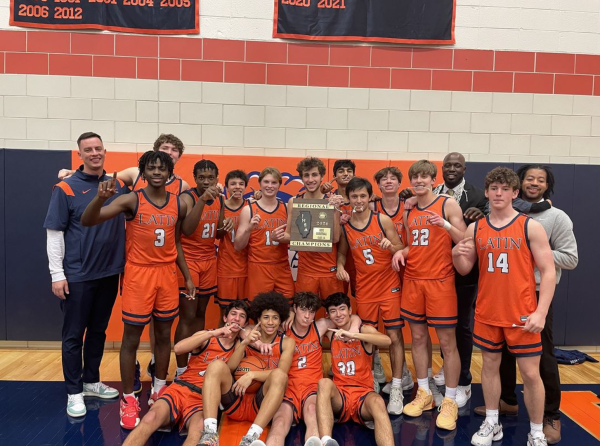

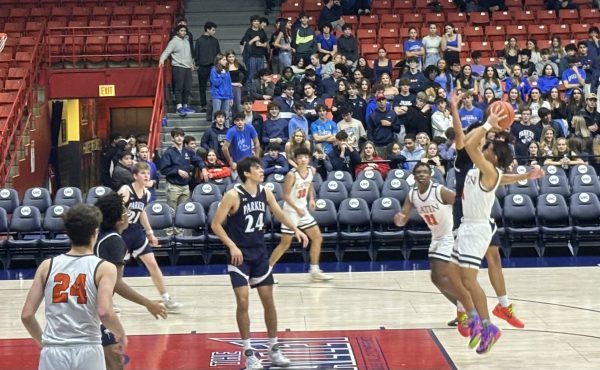
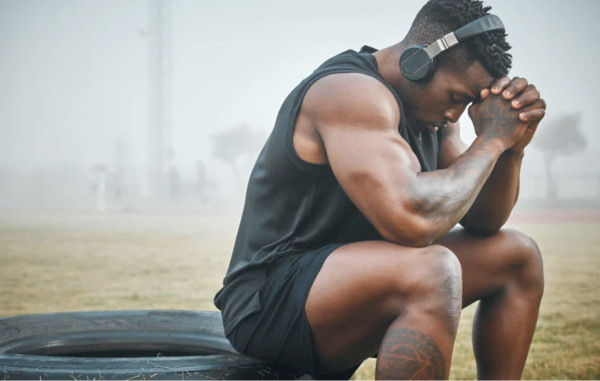

Chris Masino • Feb 17, 2021 at 4:32 pm
Hi Eliza,
I agree with what Madison and Kazi said, and so I wanted to share a thought about the title of this article. The title feels pretty misleading because it’s not the biology of trans athletes that interferes with their equitable access to competition, it’s transphobia that interferes with equality and access for trans athletes.
Mr. Masino
Maeve Healy • Feb 17, 2021 at 3:13 pm
It’s a really common belief that trans womxn have an “advantage” when it comes to women’s sports, but as Kazi said, testosterone levels differ from person to person. Several AFAB people have extremely high levels of testosterone, and several AMAB people have high levels of estrogen.
Though the average AMAB person may have a higher testosterone level than an average AFAB person, it really varies by person to person. Saying that every member of one sex has a fixed amount of hormone levels is incorrect, and it contributes to an inherently harmful stereotype.
It’s important that we support trans womxn in their athletic endeavors, whether or not they have higher testosterone levels. Womxn should be allowed to participate in womxn’s sports, period.
Madison Seda • Feb 17, 2021 at 2:26 pm
As Kazi said, I appreciate the clarification Marianne, and I share the same thoughts and concerns as Kazi about this rhetoric.
It still leads me to wonder why, though, transgender women are the ones specifically being targeted. I also wonder what this would mean for non-binary people who may want to switch into a sport that’s not their assigned gender at birth. I think this is much larger than just discussing one’s own testosterone levels, and people’s own bias’ and possibly blatant transphobic ideas.
I would also like to note that, if people in the community being discussed have issues with a certain rhetoric being put out by someone, it’s probably worth listening to. and wondering why that is.
Kazi Stanton-Thomas • Feb 17, 2021 at 10:47 am
Hey Marinane,
Although I love your clarification there still some inaccuracy with in that. Hormone levels differ person to person and therefore generalizing that all trans women have “male” ( or more accurately Assigned male at birth) levels of testosterone doesn’t really have much basis. For example, cis women can have “high” levels of testosterone, in fact the olympics have come under fire for prohibiting cis women (many of African decent) for having such levels, yet there wasn’t a true link to Testosterone and performance. Testosterone isn’t a miracle hormone and to prohibit Trans women who are WOMEN from playing Women sports, because of supposedly having more testosterone (which again is a case by case basis), is inherently transphobic.
Marinane Mihas • Feb 16, 2021 at 9:46 pm
Hey Madison!
i just wanted to clarify something as an editor of this article. The counterargument’s concern isn’t about athletes undergoing hormone treatments, rather, that trans women have male levels of testosterone, giving them an advantage when it comes to sports, particularly power and endurance sports.
Thanks so much for your comment! Hope I could help clarify what the article’s evidence is referencing.
Madison Seda • Feb 16, 2021 at 3:22 pm
I know that transgender people in sports is much bigger than just high school sports, but for this comment I’ll focus mainly on high school settings.
It seems a lot of counterarguments I’m hearing in this article are that transgender teenagers may be at an advantage because of hormonal treatment they’re on. I wonder what the statistics are for how many high schoolers are on these treatments? It seems most people have to wait until they’re 16 to get treatment, though some start younger if allowed. Considering transgender people make up about 1% of the population, along with not all choosing/are unable to go on hormonal treatments especially as teens, how many trans student athletes even have a supposed ‘advantage’?
Also – I see a lot of people focus on transgender women more than any other identity. I am curious as to why that is, and why there’s no attempt to ‘protect’ male sports.
As Kazi mentioned, their decision to even remain on the Boys Lacrosse team brought transphobic comments on the own schools page which were never addressed, even when the account was DMd about it. This was something I and many others witnessed on the account, and an example of transphobia being dismissed.
Just some thoughts, great article Eliza!